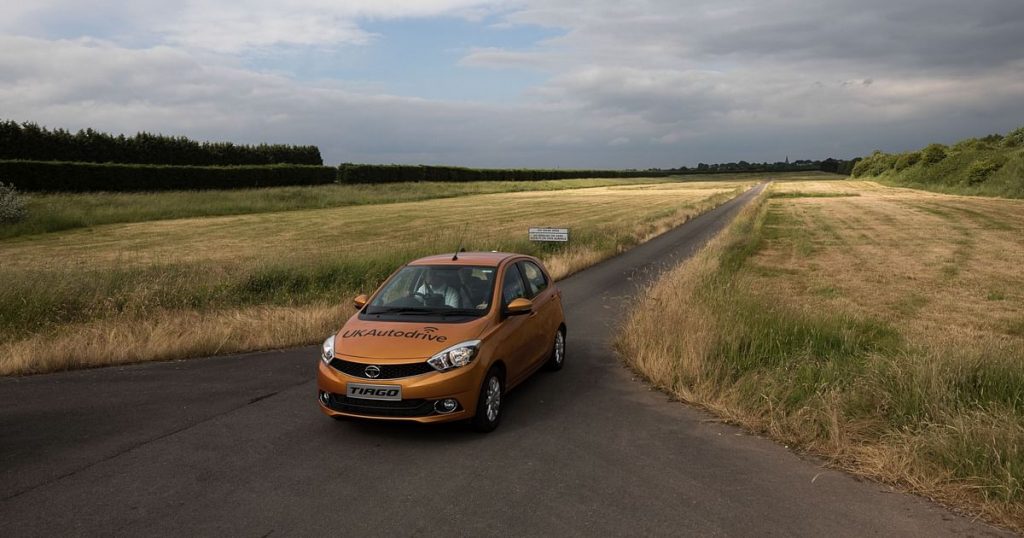Tata Motors Ltd. reported a surprise loss on account of exceptional items even as demand for its cars and utility vehicles lifted domestic sales.
The automaker reported a loss of Rs 7,585 crore in the January-March period against the Rs 2,941-crore profit in the quarter ended December, according to an exchange filing. A consensus of analysts tracked by Bloomberg had pegged the bottom line at Rs 2,774 crore.
Tata Motors recognised an exceptional charge of Rs 14,994.30 crore under the Jaguar Land Rover ‘Reimagine’ strategy. These include asset write-downs worth Rs 9,606.11 crore in relation to models that have been cancelled by the company. It reported another Rs 5,388.19 crore restructuring costs, including Rs 5,312.29 crore on costs accruals to settle legal obligations and work performed to date and provisions for redundancies and other third-party obligations.
Q4 Highlights (QoQ)
-
Revenue rose 17% quarter-on-quarter to Rs 88,628 crore, against the Rs 87,517-crore forecast.
-
Earnings before interest, tax, depreciation and amortisation rose 10.7% to Rs 12,745 crore.
-
Margin contracted to 14.4% from 15.2%, but surpassed consensus estimate of 12.8%.
The Mumbai-based automaker sold 21% more vehicles than the preceding quarter at 1.82 lakh units in the three months to March. That came as domestic sales, after a washout in the first quarter of the 2020-21 fiscal on account of the nationwide Covid-19 lockdown, gradually recovered, aided by a quicker-than-expected economic recovery and demand for personal mobility. Also, Tata Motors’ decision to hike prices from April, the second time this year to counter rising input costs, may have prompted pre-buying in March.
Tata Motors’ peer Maruti Suzuki India Ltd., too, indicated a steep commodity price increase. The nation’s largest carmaker saw its profit fall over the preceding three months in the fourth quarter.
Sales of JLR, which contributes 80% to Tata Motors’ revenue, however, saw a 3.88% sequential decline in sales in the January-March period at 1.23 lakh units. The luxury brand in February had said it expected to reduce its global salaried workforce by about 2,000 people in the next financial year to cut costs in reorganization. The company, according to a Bloomberg report, also announced a £2.5-billion ($3.5 billion) annual budget for investment in electrification and related technologies and said the Jaguar brand will go entirely electric by 2025.
Demand for JLR has also started improving in key markets like China, Europe and the U.S. Last week Moody’s Investors Service revised its outlook on Tata Motors from “negative” to “stable” because of overall improvement in its consolidated financials and turnaround in operations of JLR.
